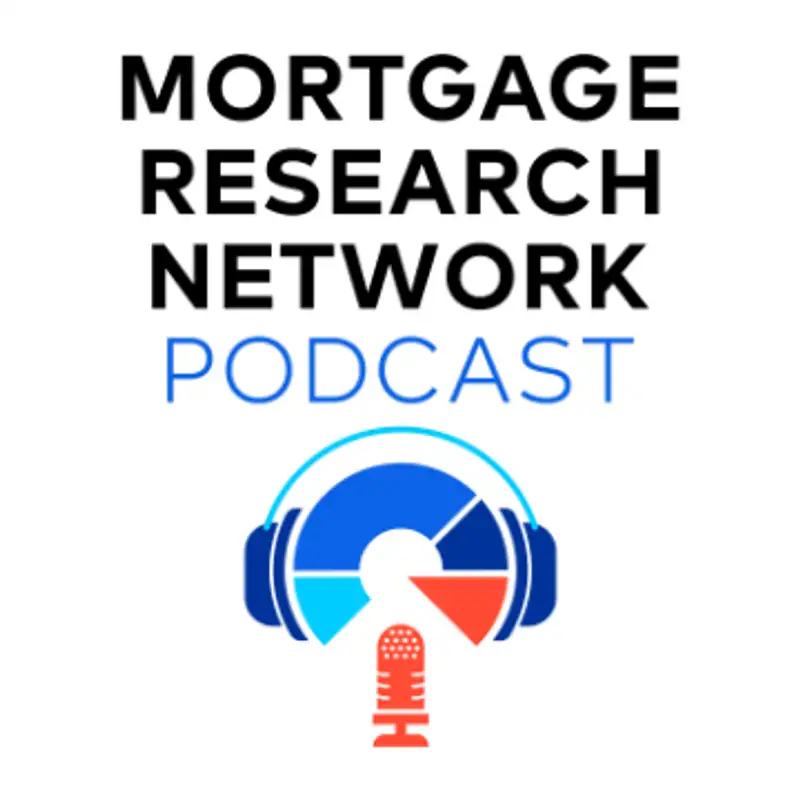New Homes < Used? The Price Flip Explained
Welcome to the Mortgage Research Network Podcast. Just a note that this podcast audio is AI-generated but based on content that was produced by people. And your hosts, Tim and Craig, are real. Without further ado, let's get into today's topic.
I'm your host, Tim Lucas, editor of MortgageResearch.com and a former mortgage professional, and with me is Craig Berry, a mortgage originator with 25 years experience.
Hi everyone.
Today we're talking about the price of new homes. They're way out of reach for the typical homebuyer, right? Well, maybe not. For the first time in modern real estate history, new homes are actually cheaper than existing ones in many markets. It's like finding a new car for a lower price than used.
That's such a dramatic shift from what we've always known about real estate. What's driving this unexpected reversal?
Well, according to recent Zillow data, new homes are selling for about $2 less per square foot than existing homes nationwide. And in some markets, the difference is even more striking - like in San Diego, where buyers are saving around $57 per square foot by choosing new construction.
But I'm guessing this isn't happening everywhere, right?
Exactly. Take San Jose, California - you're still paying a whopping $216 premium per square foot for new construction there. And in Louisville, Kentucky, there's still an 86-cent premium. But here's what's fascinating - builders are getting really creative with how they're adapting to market conditions.
You know, it reminds me of how car dealerships handle slow periods - lots of incentives and special deals. Are builders doing something similar?
Oh man, they're pulling out ALL the stops. Get this - 26% of new homes had price cuts in June, and an incredible 61% of builders were offering some kind of incentive package. We're talking mortgage rate buydowns, closing cost assistance, you name it.
That's quite a shift in strategy. How are they managing to offer these deals while still staying profitable?
Well, they're completely rethinking their approach. They're building on smaller lots, adjusting their mix of housing types, and streamlining their construction processes. Plus, unlike individual homeowners, these companies need consistent cash flow to stay in business - they can't just wait out a market downturn.
So beyond the potential cost savings, what makes these new homes attractive to buyers?
Energy efficiency is a huge factor. Modern building codes and materials mean significantly lower utility bills - we're talking about savings that could add up to thousands per year. Plus, you get comprehensive warranties that can protect you for up to a decade on structural elements.
That long-term protection must be really appealing to buyers who are worried about unexpected repairs.
Absolutely, and there's also the health aspect to consider. Modern homes are built with low levels of volatile organic compounds in materials, better ventilation systems, and improved air filtration. Since the pandemic, these features have become major selling points.
What about customization options? That seems like it could be a significant advantage.
It's huge. If you get in early enough in the construction process, you can personalize everything from the floor plan to the finishes. Want specific kitchen countertops or smart home technology? It's usually cheaper to include these during construction than to retrofit an existing home.
Though I imagine there must be some trade-offs with new construction, even at these lower prices?
You're right - those smaller lot sizes we mentioned can be a real issue for some buyers. And location is another factor - new construction often happens on the outskirts of urban areas, which might mean longer commutes or less established neighborhoods.
That's an interesting point about established neighborhoods - there's something special about mature trees and developed community amenities.
Exactly, and some buyers really value that sense of history and character in older homes. But here's what's fascinating - this current pricing situation is forcing many buyers to reconsider their priorities. When new homes were consistently more expensive, it was easier to rule them out based on budget alone.
So what's your take on how long this unusual pricing situation might last?
Well, it's likely tied to broader economic conditions. As long as builders face challenges with high mortgage rates and construction costs, they'll probably continue to be aggressive with pricing and incentives. But if the market shifts, if rates come down significantly or demand increases, this advantage could disappear pretty quickly.
Sounds like buyers who are in a position to act might want to take a serious look at new construction right now.
That's right, but they need to do their homework. Check local market conditions, compare prices per square foot, factor in those long-term benefits we discussed, and carefully consider location and lot size. It's really about finding the right fit for your specific situation and taking advantage of this unique market moment while it lasts.
That's about all the time we have for this topic, but we go into even more detail on the site. To learn more, go to Mortgage research.com and type new home cost in the search bar. We'll see you next time on the Mortgage Research Network Podcast.
